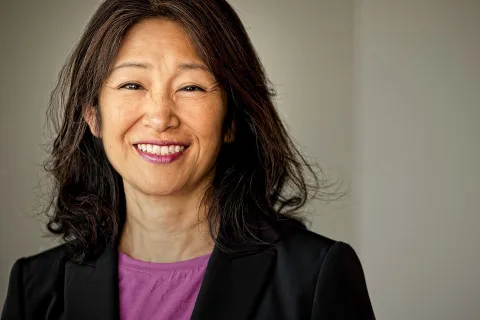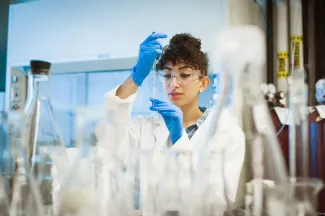A leading researcher in clean energy systems and technologies, Dr. Naoko Ellis helps students gain both technical expertise and the communication skills to understand how to work with others to turn technologies into sustainable solutions.

- Program:
- Campus: Vancouver
Education: PhD (UBC), MESc (Western), BSc (Waterloo)
What led you to engineering?
When I was 13 I read Rachel Carson’s Silent Spring, which launched my interest in the impact of chemicals in our environment and ultimately led to my decision to do an undergraduate degree in chemistry.
Towards the end of my degree I realized I could have a greater impact in society as an engineer. My education in chemistry taught me to look at things at the molecular level and to really get to know compounds. But I wanted to take that knowledge to solve societal problems and develop different technologies to address issues of concern – and chemical engineering was the best way to do that.
Why is this research important?
I’ve done a lot of research in my career that has advanced our understanding of the knowledge and technologies we need to generate clean energy.
I want that research to have a broader impact. We have many helpful technologies at hand, yet they are not being applied at the needed scale.
One of the bottlenecks has to do with education – many of these tools are not embraced or well understood. I believe that education and communication are essential to equip all of us – individuals, students, communities, organizations and governments – to make decisions that can make a positive difference.
The Accelerating Community Energy Transformation project is an exciting opportunity to identify ways clean energy solutions can create healthier, energy self-sufficient communities.
This knowledge could help advance our shared understanding of how to scale solutions up from the level of a few communities community to larger areas.
What undergraduate courses do you teach?
I teach a course on carbon capture, conversion and sequestration, as well as a course on environmental engineering and sustainability leadership.
One theme that runs throughout my classes is the need for engineers to gain both technical expertise and the communication and leadership skills to understand how to work with others to turn technologies into sustainable solutions.










